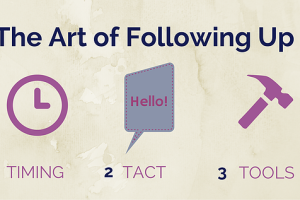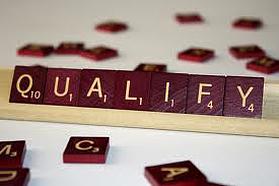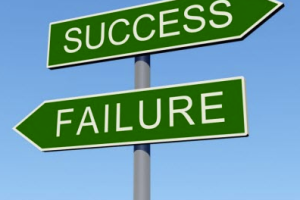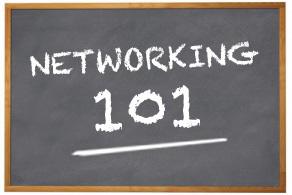We may now be entering a post-pandemic world, but for many of us, remote work seems like it’s here to stay. It’s part of the “new normal.” And while some of us made the transition as a quick, impromptu response to the pandemic, others were already headed this way with hybrid teams well before the pandemic hit.
Either way, operational logistics have toggled back and forth too often for anyone’s liking over the past year, and we’ve probably developed some blind spots with regards to how our teams are ‘actually’ feeling about the current state of affairs. Perhaps it’s time for us to check in with our teams to find out what’s working well in this evolving digital workspace – and what isn’t.
In this post, we’ll talk about several ideas for taking the pulse on team morale and revitalizing a potentially flagging sales culture as the era of hybrid work continues.
- Solicit honest feedback.
Let’s never forget that a winning sales culture begins with sensitive, responsive leadership. But whereas in the past many of us may have been good at “reading the room” and picking up on shifts in group morale without a formal feedback-gathering process, these days it’s better to be explicit, since the remote workspace can obscure individuals’ body language and suppress opportunities for a candid conversation. We shouldn’t assume that we don’t have a culture problem just because our people aren’t talking about it. Quite the opposite, in fact: We help create a positive sales culture by regularly and directly asking our people for feedback on what’s been working well for them, what isn’t, and how they’d like to see things change moving forward.
This year has been a little different for all of us, so in meeting with our teammates, we should keep a few things in mind:
Name the elephant. There’s no use dancing around the fact that the shift to remote work may not have been as well-planned or as well-executed as we might have liked. Frankly, some of us may have made serious missteps early on that cost us some of our best people. So if we have reason to suspect morale issues are already at play, let’s call these out and make sure our people know they won’t be punished for being honest with us. If we feel we’ve made mistakes, we should name those early on, so that our team understands we’re looking for ways to grow – not to sweep problems under the rug.
Avoid leading questions. Leading questions are a tried-and-true sales technique, designed to reinforce attitudes and behaviors that benefit the questioner. So we need to be careful that we aren’t framing our questions in such a way that we inadvertently reinforce the status quo. After all, the goal of soliciting feedback isn’t to confirm what we think we know; it’s to uncover blind spots so that we can take appropriate action. Consider these examples:
PROBLEMATIC: “What do you like best about meeting over Zoom?”
BETTER: “Do you feel like you’re getting what you need out of our weekly Zoom meetings?”
PROBLEMATIC: “Would you agree things are getting better, now that we’ve been at this a while?”
BETTER: “Do you feel your job has gotten easier, harder, or stayed about the same since this time last year?”
Consider using an anonymous survey. Sometimes one-on-one or whole-team interviews aren’t the best way to solicit honest feedback, particularly when there are interpersonal issues on the line. Or maybe something will surface during an initial feedback round that merits further exploration – like employees mentioning feeling like they’re having to work more hours without pay because of the “always on” nature of the Internet at home or a rumor that some people are quietly looking for other jobs. In these cases, it might be a good idea to conduct an anonymous survey to poll our teams for particular details – in an environment that allows them to be more forthcoming.
Regardless of what combination of methods we use, the very act of reaching out for feedback is a gesture of goodwill that can boost camaraderie – particularly if we find ways to visualize our findings as a result of the feedback-gathering process and use the information to collaboratively develop new or improved remote work processes. Because a culture that values honest feedback, backed by leadership that proactively responds to such feedback, is one that promotes a sense of personal safety and fulfillment among team members.
- Boost your team’s learning opportunities.
Many of us have spent more time at home than out and about this past year. That means we’ve also been without many of the organic personal growth opportunities we might customarily encounter as we go about our everyday lives. So savvy sales managers can boost their team’s energy level by finding creative ways to bring continuous learning to the remote work environment.
Here are a few ideas for doing just that:
Host guest speakers. One of the distinct benefits of modern Internet video conferencing is the way it enables us to host distant guests we might otherwise never engage with because of the complications and expense of travel. If we’re willing to do the online research, we’ll discover all kinds of field experts, sales clinicians, and earthy people with (affordable) wisdom to share. Why not schedule someone to give a 30-minute talk for our team from time to time? Whether it’s an implementation expert discussing the implications of Windows 11 for cloud computing or a relational coach offering a spirited talk on how to use the enneagram to get along better with coworkers, such presentations break up the monotony of the online meeting routine and give teammates something to talk about offline. And if the meetings are recorded, we can even incorporate the content into future training resources.
Offer opportunities for skills certification. Employees appreciate being a part of organizations willing to invest in their skills, particularly when their efforts to better themselves are rewarded with tangible credentials that boost their sense of personal value and organizational visibility. Sales managers eager to grow fresh leadership among their team members might therefore consider investing in certificate programs that could help their best players hone and earn recognition for skills especially valuable in the remote workplace – things like digital leadership, remote collaboration, and IT project management. Nothing revitalizes a flagging workplace culture quite like watching your peers achieving personal life goals at work.
Invest in personal growth, too. To help reduce burnout and loneliness among team members, consider offering concrete opportunities for employees to create a little work-life balance, learn personal management skills, or even explore new hobbies – on the clock. Consider rewarding high-performing players with gym memberships or family entertainment center passes as a way of discouraging “all-work-no-play” organizational morale. Invite team members to suggest quarterly hobby exploration activities during which interested employees can spend an afternoon learning about things like creative writing, adult coloring books, or beginner’s yoga. Encourage players who are especially passionate about their hobbies to come up with ways to share those hobbies with their teammates, since this can help promote a sense of shared interest and camaraderie beyond the bounds of typical workplace roles and relationships.
- Foster some healthy competition.
It’s so common as to almost be cliché, but vibrant sales offices have always thrived on a sense of healthy competition between salespeople. Nothing motivates us to push a little harder, put in a few extra phone calls, or stick with it in the tough times quite like a little friendly peer rivalry and group celebrations. Contests, whether formal or informal, help put our efforts into perspective and add a sense of urgency (and accessibility) to achieving meaningful team goals. And we have a few suggestions for bringing that cultural ingredient to the remote workplace, too:
Reward activity, not just results. In order to build a work culture that produces high performers, we have to foster an atmosphere of continuous encouragement rather than one that subsists on isolated bursts of celebration. Besides acknowledging the big wins, we need to find ways to reward our teams, individually and corporately, for continuously adhering to and finding ways to improve our sales processes. That’s because these processes are what drive the big wins in the first place, and it’s easier for teams to take corporate ownership of individual members’ successes when they’re part of the same well-oiled machine. In the virtual work environment, we might find ways to acknowledge an employee’s sustained efforts to follow up with all assigned leads, for example. Or perhaps we could publicly commend team members for catching up with some recent industry publications or collaborating with other organizational stakeholders to help improve a tricky implementation challenge. Since the virtual workplace would otherwise tend to obscure these behind-the-scenes efforts, managers making a big deal of them helps reinforce the value of gainful activity as a matter of cultural participation.
Celebrate wins in real time – even the little ones. In the physical office environment, it’s easy to high-five teammates or make a little celebratory scene when a significant milestone is reached. In the virtual office, this can be a little challenging, but by making smart use of technology, we can still find ways to create a sense of immediacy in our efforts to reward top performers in real time. Instead of waiting for the next team conference call, for instance, managers might message the whole team on Slack celebrating a landed contract, a team member’s work anniversary, or a piece of positive customer feedback received earlier in the day. And when the really big wins happen, managers might even try organizing an impromptu virtual happy hour or dance party to celebrate. Let’s be creative! Such things break the silos of working independently and promote camaraderie across cyberspace. And let’s not forget: it pays to celebrate the small wins, too – Like when a member passes a certification exam, or when the team successfully onboards a new recruit.
Offer meaningful prizes. If we’re going to foster some healthy competition in our organizations, we’ve got to have incentives that make sense to our team members. Notably, this doesn’t necessarily mean those incentives have to be big or expensive. They just need to be meaningful. So let’s take the time to find out what interests our teams the most. Maybe that will look like a new Macbook shipped directly to the member who closes the most valuable deals this quarter. Maybe it’s a group trip to Comic Con (in full costume) if we manage to add at least 10 new clients before the end of the year. Or perhaps it will be as simple (and inexpensive) as giving top performers the right to pick the next title for the team’s monthly movie night. As long as it makes sense, it will tap into our team’s competitive spirit.
Let’s make sure our teams know that we can still have fun and be fulfilled, even when we’re working remotely for parts of the week/month. By taking an accurate pulse on how we’re doing, then finding ways to craft unique experiences that promote socialization and a spirit of healthy one-up-manship, we can pump new life into our sales culture, even after a year of awkward transitions and tough organizational setbacks.









Speak Your Mind